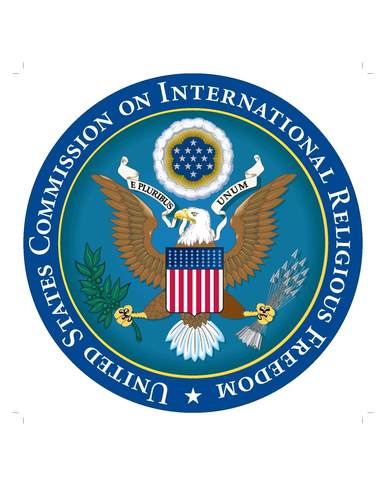30 April- The United States Commission on International Religious Freedom (USCIRF) today released their Annual Report 2015, highlighting both the progress and regression the international community has achieved over the last year as it relates to religious tolerance. Specifically in its section on Bahrain, the report highlights the continued state of religious discrimination of the Shia community.
The USCIRF report notes that Shi’a citizens continue to be detained and arrested arbitrarily in Bahrain. They particularly highlighted the case of Shi’a cleric and opposition leader Ali Salman, who has been in detention for over 4 months awaiting trial, and the denaturalization of Bahrain’s most senior Shi’a cleric Hussain Najati, who was forced to leave the country in 2014. The United Nations Special Rapporteur on Freedom of Religion or Belief called Najati’s case one of “religiously motivated discrimination.” USCIRF also cites instances of sectarian rhetoric used by government and pro-government media. New media laws recommended by the BICI that would limit anti-Shi’a language have also not been passed. Furthermore, Shi’a involvement in government has been severely limited, as there are no Shia in the upper levels of the government or Bahraini security apparatus. In attempts to repair past abuses during the unrest in the spring of 2011, the Bahrain Government has rebuilt eight of the 30 mosques they destroyed with 13 more mosques are approximately 80-90 percent complete. Another six mosques were rebuilt by the Shi’a community. However, the report notes that Bahrain has not followed through in its commitments to reimburse the Shi’a community for the six mosques that they rebuilt on their own in 2014. The report also notes that a significant amount of recommendations made by the Bahrain Independent Commission of Inquiry (BICI) have yet to be implemented.
ADHRB supports USCIRF’s recommendations urging the United States government to press the Bahraini government on fully implementing the BICI recommendations, especially those related to freedom of religion and belief, as well as USCIRF’s calls for the Bahraini government to reimburse the Shi’a community which used its own funds to rebuild six of the mosques demolished in 2011.
USCIRF found evidence of similar religious repression in Saudi Arabia. Its report on the kingdom indicates that Saudi authorities continued to violently restrict the practice of Shi’a Islam, as well as expressions of any non-violent religious dissent. The Saudi government increasingly cited anti-terror legislation as grounds for the arrest, detention, and prosecution of Shia religious figures. USCIRF notes that over the last year, the Specialized Criminal Court, a court that tries terrorist-related crimes, has sentenced at least six Shia clerics and protestors to lengthy prison terms and even death, including Nimr al-Nimr and Tawfiq al-Amr. USCIRF also notes that religious charges have been used to prosecute secular political dissent, as in the case of blogger Raif Badawi.
The Saudi government has implemented new laws that classify blasphemy and advocating atheism as acts of terrorism, enabling the court to hand down even harsher penalties for already-criminalized behaviors. These trends have all facilitated the increased persecution not only of the Shia minority but also of dissident Sunni and expatriate communities. USCIRF rightly calls for the continued designation of Saudi Arabia as a Country of Particular Concern by the U.S. government, and increased pressure to make substantive progress in the highlighted areas. It also urges the Saudi government to release prisoners of conscience like those named above, to remove laws that criminalize freedom of expression, to dissolve the Saudi religious police, and to codify equal rights and protections for religious minorities.
ADHRB has chronicled the targeted religious discrimination of Shi’a in Bahrain in its report “Apart in Their Own Land: Government Discrimination Against Shia in Bahrain,” which can be read here, and investigated the abuse of religious law in the Saudi judicial system in their report “The Pretense of Progress,” which can be accessed here.





